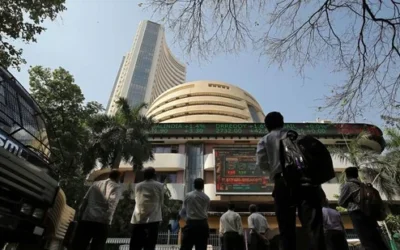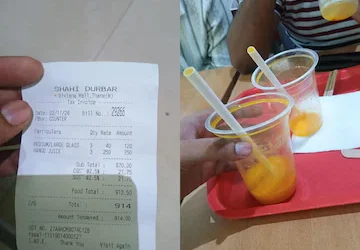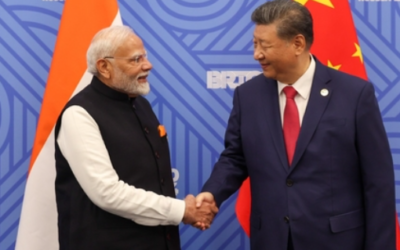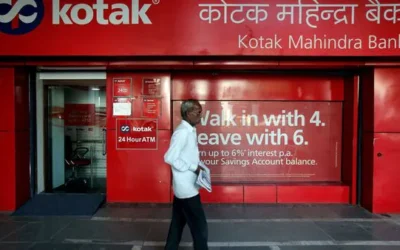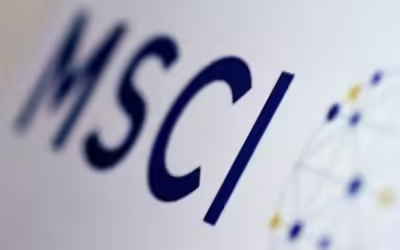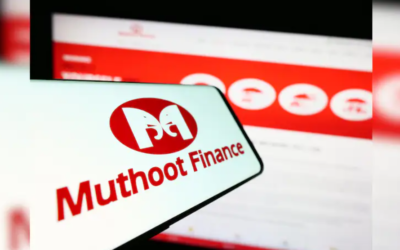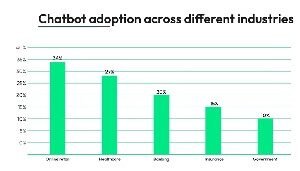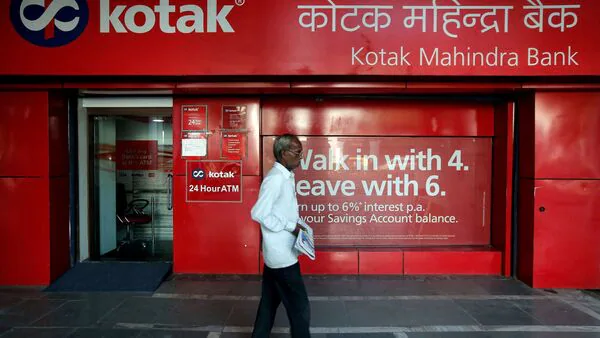Following the publication of underwhelming quarterly results, Kotak Mahindra Bank witnessed a 7.2% decline in its shares, sliding to ₹1,735. Analysts proceeded to lower the target price for the stock, citing worries regarding the strain on the unsecured portfolio and decreasing margins.
During Monday’s intraday trading session on October 21, the stock price of Kotak Mahindra Bank, a prominent private sector bank in India, dropped by 7.2% to ₹1,735 per share. This decrease came after the publication of the bank’s financial results for the September quarter (Q2FY25), which fell short of market expectations and led several brokerage houses to revise their price targets for the company.
Phillip Capital, a renowned global brokerage firm, revised its stock rating for the bank from ‘buy’ to ‘neutral’ while also lowering the target price from ₹2,010 to ₹1,940. The firm highlighted ongoing challenges in the bank’s unsecured portfolio, anticipating sustained pressure for the coming quarters.
Kotak Mahindra Bank is expected to face significant impact from declining margins amid an interest rate reversal period, with projections of subdued earnings growth attributed to challenges in net interest margins (NIM) and heightened credit expenses.
Systematix Institutional Equities has adjusted its price target for the stock, decreasing it from ₹2,090 to ₹2,010, all the while affirming a ‘buy’ recommendation. Their projections indicate expected credit costs in various sectors such as credit cards, microfinance institutions (MFIs), and other portfolios to be at 4%, 5%, and 0.4% for FY26, and 4%, 3%, and 0.4% for FY27, correspondingly. These adjustments are predicted to result in an earnings reduction of around 5% spanning FY25-27.
The independent bank is now valued at 2.3 times the price-to-adjusted book value as of September 2026, a decrease from the previous valuation of 2.4 times. Projections now anticipate a 2.1% return on assets and a 13.2% return on equity, slightly lower than the initial estimates of 2.2% and 13.5%, respectively.
Maintaining its ‘buy’ stance on the shares, Investec has revised its target price downwards from ₹2,300 to ₹2,185. On the other hand, Motilal Oswal maintains a “neutral” rating with a target price set at ₹1,950. The bank is seen adeptly managing regulatory constraints, and the potential ban removal could boost its operational efficacy further.
Earnings snapshot
The banking institution disclosed a profit growth of 5% below projections, amounting to ₹3,344 crore for the period of July to September. This was influenced by elevated loan provisions and diminishing lending margins. Funds earmarked for potential non-performing loans, categorized as provisions and contingencies, saw a substantial spike of close to 80% to reach ₹660 crore in the quarter.
The Net Interest Income (NII) of ₹7,020 crore matched projections, exhibiting an 11.5% growth compared to the previous year. Conversely, the Net Interest Margin (NIM) saw a decrease to 4.9%, a decline of 11 basis points from the previous quarter. This was attributed to a smaller proportion of high-yielding unsecured loans, the prolonged effects of regulatory limitations throughout the quarter, and a rise in slippages.
The growth of high-yielding unsecured assets has been adversely affected by the RBI’s restrictions on issuing credit cards and acquiring new customers through digital channels, as highlighted by analysts. They anticipate a sustained strain on NIM due to the modest expansion in the unsecured sector and the repercussions of deposit re-pricing.
[Modified Version]: In terms of asset quality, the Gross Non-Performing Assets (GNPA) ratio saw a 10 basis points increase from the previous quarter, reaching 1.49%, whereas the Net Non-Performing Assets (NNPA) ratio rose by 8 basis points to 0.43%. Slippages for the quarter amounted to ₹1870 crore, translating to a ratio of 1.92%, up from 1.44% in Q1. Additionally, restructured loans accounted for 0.06%, totaling ₹240 crore.
The bank has recently struck a deal to purchase Standard Chartered Bank’s personal loan portfolio worth ₹4100 crore. This move aims to strengthen the bank’s presence in the retail credit sector. The acquisition is anticipated to finalize within the upcoming three months pending regulatory and other necessary clearances.












































